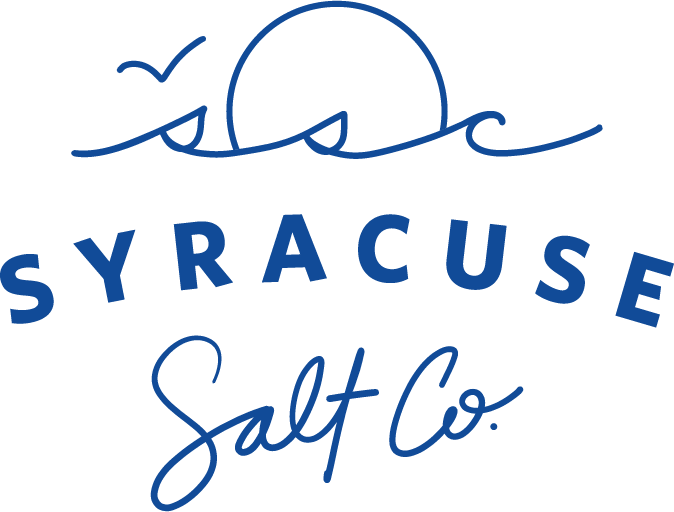...But What Does it all Mean?
photo credit: http://jennbregande.com/
When given the opportunity to add something new to our cooking arsenal, one of the first things we may consider is any potential health risk. This holds especially true when it comes to that one ingredient which has such a stigma attached to it -- SALT.
We totally get it - changing our routine from what our parents or grandparents or even great-grandparents used can be daunting.
To help you along your path to salt enlightenment, let’s look at a few terms and try to make some sense of them.
Sea Salt
Sea salts are produced by evaporating -- wait for it -- sea water! The differences emerge thanks to the geographic location of the water. Depending on where it is drawn from, saltwater will have different minerals and characteristics, and is significantly less processed than table salts. Thus, the au naturale appeal of sea salt vs. table salt comes into play. Sea salts are at least 97% sodium chloride with organically added minerals, with the shape of the crystals varying from flakes to larger irregular shaped crystals. These minerals impart a freshness to foods, reminding you of the region they come from. The crystalline structure allows the salt to spread as it dissolves, letting the flavors distribute more evenly throughout the food.
Table Salt
This is the salt you're probably most familiar with, but do you know what's actually in it? Most table salts are 99% sodium chloride mined from the ground. Sounds ok, right? BUT they are then artificially processed, removing any trace minerals which may have been hanging out, ready to boost your immune system. Table salts are typically cubed shaped crystals, with anti-caking and iodine (we'll get to those later) added.
Kosher Salt
Surprisingly, the term "Kosher" as it pertains to salt actually refers to the size of the grain, NOT the certifying agency making sure it is "pure" in the eyes of Jewish dietary law. It tends to be a larger crystalloid salt - less refined than table salt - so it can draw blood out of meat better than smaller crystallized table salt. However, have no fear! It may still be certified Kosher - just make sure to look for the Certified Kosher label on the product package if that's what you're into.
Anti-Caking
Salt attracts moisture (some more than others) so you will find that many commercially available salts have an anti-caking agent added in. Manufacturers add a small amount of things like potassium, sodium ferrocyanide, or sodium aluminosilicate. I know, those last two sound a bit scary, but don't worry, rice does the same thing! This is why you probably see random rice grains in the salt shakers of your favorite restaurant.
Iodine
Iodine has been added to commercial table salts since 1924, when the US government suggested it was a good way to help prevent a condition called goiter. Hence, "Iodized Salt" on your canister of Morton's. Truly, Iodine is an element which we all do need in small quantities. Way back when this suggestion originally came out almost a century ago, the American diet did not contain enough iodine-rich food. As many Americans adopt healthier eating habits, it it's not quite as necessary to use artificially iodized salt. You may be eating iodine rich foods without even realizing it, like potatoes, cranberries, strawberries, yogurt and sea vegetables, all of which can easily provide enough iodine in your diet. If this is a concern for you, then be sure to check out our Himalayan Salt, which has trace amounts of iodine added naturally. See also: http://www.globalhealingcenter.com/natural-health/iodine-foods/

